Tahdig Recipe: How to Make Persian Crispy Rice
Tahdig Recipe: How to Make Persian Crispy Rice
If you're craving a delicious and crispy Persian tahdig, check out this recipe! I've got you covered with this foolproof tahdig that will help you achieve that perfect golden crust and aromatic rice. This Persian rice dish is perfect for your next family gathering or special weekend dinner!
What is Tahdig?
Persian tahdig is the delicious crispy layer that forms at the bottom of the rice. It's basically crispy rice with a texture that is crispy, golden, and perfectly crunchy. This Persian rice dish is the food that everyone fights over at family gatherings!
In our Persian culinary tradition, we enjoy savoring the crunchy rice alongside a generous serving of Persian stew and some plain yogurt. Tahdig is my ultimate favorite food!
Why We Use Saffron in Persian Tahdig
Color: The bright, vibrant color turns the rice a golden yellow or orange, making it visually stunning!
Flavor: It enhances the flavor by adding an exotic taste to the rice. It is floral, earthly and extremely aromatic!
Cultural: It’s the most cultural ingredient in Persian cuisine. It is considered a luxury and a celebration.
How to Properly Use Saffron
To use saffron in tahdig, soak the saffron threads in a bowl or cup with a small amount of hot water. Allow them to soak for a few minutes until the water turns a deep golden color.
Once the saffron threads have soaked, you will have a saffron-infused liquid. Stir the liquid to ensure an even distribution of color and flavor.
Depending on the recipe, you can either mix the saffron-infused liquid with other ingredients, such as melted butter or oil, before adding it to the rice mixture. Alternatively, you can drizzle the saffron-infused liquid directly over the rice layers.
Remember, saffron is a potent spice, so use it sparingly. Adjust the amount of saffron according to your personal preference and the desired intensity of flavor and color in your tahdig.
How to Make a Successful Tahdig
Rice: Selecting the right rice is key! It would be best if you had a long grain basmati rice. This is the key to making sure it comes out fluffy and doesn’t stick together.
Here is the one I grab at the Persian market. You can also order it online.
Pan: make sure you have a non-stick pan. It’s important to use something that doesn’t stick.
Rinse the rice: make sure you rinse the rice 8-10 times to remove all of the excess starch. This will help give you a crispy tahdig.
Add yogurt: yogurt adds a tanginess and creaminess. It helps the rice achieve a gorgeous golden color.
Oil: don’t skimp on the oil. The oil is needed to make a crispy bottom. I like using a non-flavored oil like avocado oil for this.
Patience: patience is the key here! Cook on low and slow. Make sure to rotate the pot every 15 minutes to get the crispy rice all throughout!
Saffron: When soaking the saffron in water, you enhance its colors and flavors.
Flip: Carefully flip the pan when you are done cooking. This allows the rice to stay intact and the crispy tahdig to appear in a dramatic presentation.
Fixing Common Tahdig Mistakes:
If your crispy rice isn’t turning out quite right, here are some common problems and how to fix them:
1. Tahdig Sticks to the Pot
Why it happens: Not enough oil or butter, or the heat was too high.
How to fix it: Let the tahdig rest off the heat for a few minutes before flipping. If it’s still stuck, place the pot over low heat for another couple of minutes to loosen the crust.
2. The Crust Isn’t Crispy Enough
Why it happens: Heat was too low, or the rice wasn’t packed tightly enough at the bottom.
How to fix it: Make sure the oil and butter are hot before adding the rice. Increase the heat slightly and let it cook a little longer before checking again.
3. The Crust is Too Dark or Burnt
Why it happens: The heat was too high, or it cooked for too long.
How to fix it: Next time, cook on low to medium-low heat and check sooner. If part of the tahdig is burnt, you can trim off the dark edges and still enjoy the crispy parts.
4. The Rice is Too Dry or Hard
Why it happens: Not enough steam or cooking time.
How to fix it: Sprinkle a little water over the rice before steaming and wrap the lid with a towel to trap more moisture.
5. The Rice Didn’t Form a Solid Crust
Why it happens: The bottom layer wasn’t compact enough, or it lacked enough fat to crisp up.
How to fix it: Press the rice down gently when layering, and don’t skimp on butter or oil. Using yogurt in the bottom layer can also help bind the grains together.
With a little patience and these fixes, your tahdig will turn out golden, crispy, and delicious!
Looking For More Persian Recipes?
I have a weekly newsletter where I send out a new recipe each week. I have a few Persian recipes that are archived there! These are my favorites; they are so flavorful and really easy!
Tahdig Persian Crispy Rice Ingredients
3 cups of basmati rice
4 1/2 cups of filtered water
1/2 cup avocado oil or any neutral oil
2 teaspoons salt
1/4 teaspoon saffron threads (soaked in 2 tablespoons hot water)
2 tablespoons melted butter (optional for extra richness)
How to Make Tahdig Persian Crispy Rice
Wash the rice under cold water. I like to cover the rice with water and swirl my hands through the water, then drain. Repeat about 5-6 times until the water being drained is no longer cloudy. This helps remove excess starch and prevents the rice from becoming too sticky.
Either transfer that rice into a non-stick skillet (with a lid). I have linked the non-toxic ceramic one I use below.
Parboil the rice. To do this, add 4 1/2 cups of filtered water and 2 teaspoons of salt to the washed rice and let it come to a boil until the rice is al dente. Drain the rice in a colander.
In the same pan you boiled the rice in, add 1/2 cup of avocado oil to the bottom of the pan, make sure it is enough to coat the bottom of the pan generously.
Turn the heat on medium/high.
Once hot, add your rice into the pot, make 3-4 holes in the rice to allow the steam to escape.
Sprinkle the butter on top.
Stir together the saffron threads and warm water. Drizzle that on top of the rice.
Put a cloth over the top of the rice, then the lid. Reduce heat to low and cook for 45 minutes. Make sure to rotate the pan every 15 minutes or so.
To serve, put a flat serving plate or dish on top of the pot and flip it over carefully. Crispy Persian rice is always traditionally served inverted!
FAQ
-
To make tahdig, you will need 3 cups of rice, 4 ½ cups of filtered water, ½ cup avocado oil, or any neutral oil, 2 teaspoons salt, ¼ teaspoon saffron threads (soaked in 2 tablespoons hot water), and 2 tablespoons melted butter (optional).
-
For best results, use long-grain basmati rice in your tahdig recipe. This is the type of rice used in the traditional method to make perfect Persian rice.
-
No, tahdig does not require any special equipment. You will need a non-stick skillet or pan with a lid, a colander, and a clean kitchen towel to cover the rice while it cooks. These are common kitchen items that most home cooks already have. However, if you don't have a non-stick pan, I recommend investing in one to ensure the tahdig doesn't stick to the bottom. Otherwise, you will be good to go with basic kitchen equipment.
-
Tahdig typically takes about 1 hour to prepare, with 20 minutes of prep time and 45 minutes of cooking time. It's important to cook the rice on low heat and rotate the pan every 15 minutes to ensure that the rice is evenly cooked and the tahdig is crispy throughout.
-
The most important step in making tahdig is rinsing the rice thoroughly to remove excess starch. This helps prevent the rice from becoming too sticky and ensures a crispy tahdig. Additionally, using the right type of rice, a non-stick pan, and enough oil are also crucial steps to achieving a successful tahdig. Patience is key when cooking this Persian-style rice, as it needs to be cooked on low heat and rotated periodically to ensure an evenly crispy bottom layer.
-
There are a few tips and tricks to achieve the perfect, crispy golden crust on your tahdig:
1. Use a non-stick pan: A nonstick pot or pan will help prevent the rice from sticking to the bottom, allowing for a crispier tahdig.
2. Use enough oil: Make sure to coat the bottom of the pan with oil generously. This will help create a crispy and golden crust on the crunchy tahdig.
3. Cook on low heat: Cooking the rice on low heat will allow it to cook slowly and evenly, giving the tahdig time to develop a crispy texture.
4. Rotate the pan: Rotate the pan every 15 minutes or so during cooking. This will help ensure the rice cooks evenly and the tahdig has a crispy crust.
-
1. Use a healthier oil: Instead of using avocado or neutral oil, you can use olive or coconut oil, which are considered healthier options.
2. Reduce the oil: You can reduce the amount used in the recipe to make it lighter. Instead of generously coating the pan's bottom, you can use a bit less oil.
3. Skip the butter: If you want to reduce the fat in the tahdig, you can skip the melted butter altogether. While the butter adds richness, it's not necessary for the dish.
4. Serve with healthier sides: you can opt for lighter sides such as a salad or grilled vegetables. This will help balance out the meal and make it healthier overall.
-
Instead of using butter, you can omit it or use a vegan butter substitute. The rest of the ingredients remain the same. Just make sure to use a non-animal-based oil and skip the butter for a vegan-friendly tahdig.
-
Some common variations include "potato tahdig," which includes adding sliced potatoes to the bottom of the pot or pan before adding the rice. This adds extra flavor and texture to the rice tahdig. You can add spices like turmeric or cumin to the rice for flavor. Another variation is to use different types of oil, such as ghee or sesame oil, to give the tahdig a unique taste.
This deliciously perfect Tahdig Persian Crispy Rice recipe is a great way to indulge in Persian cuisine. It's my absolute favorite dish! Pair it with Persian stew and plain yogurt for the perfect combination of creamy, flavorful, and crispy textures.

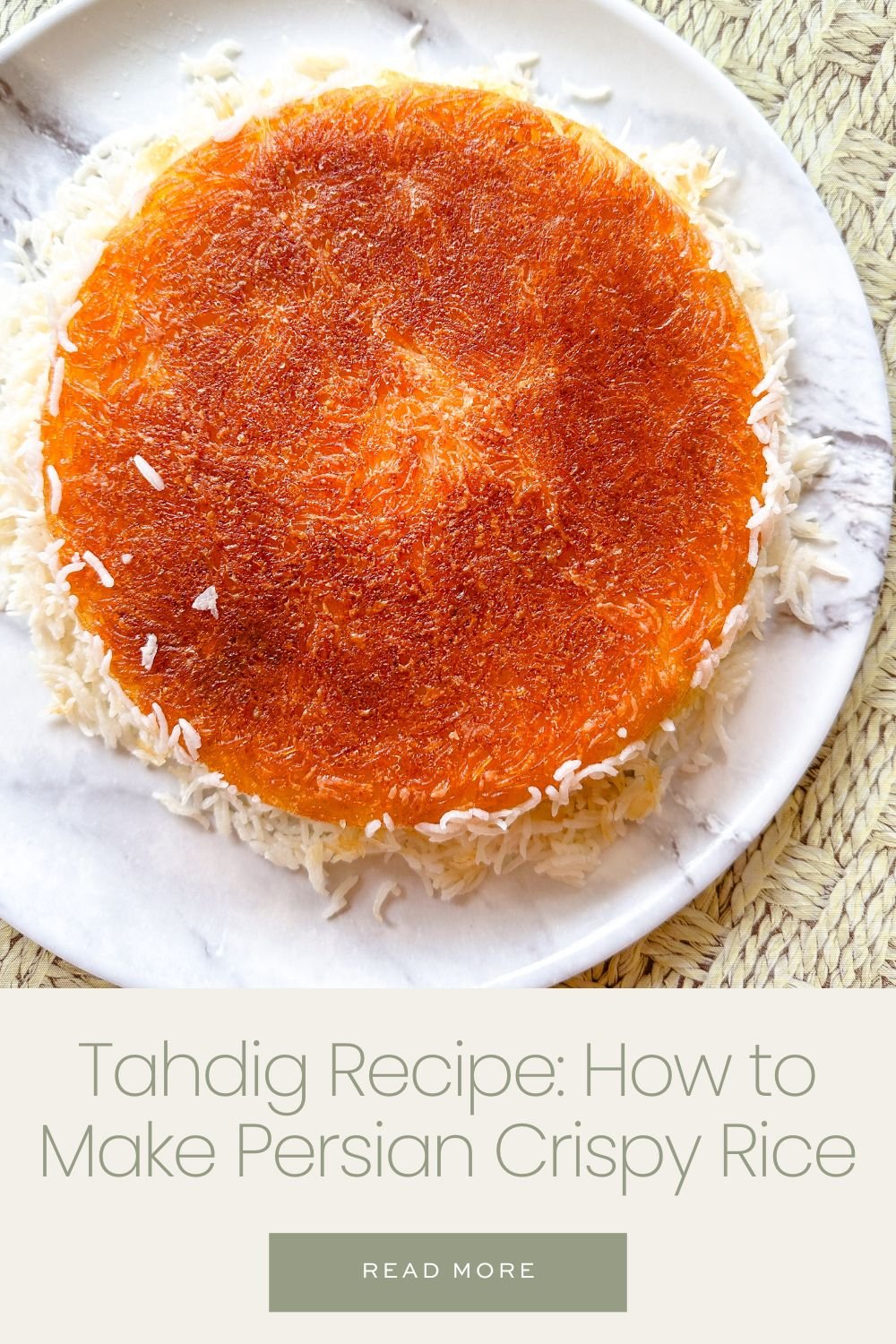










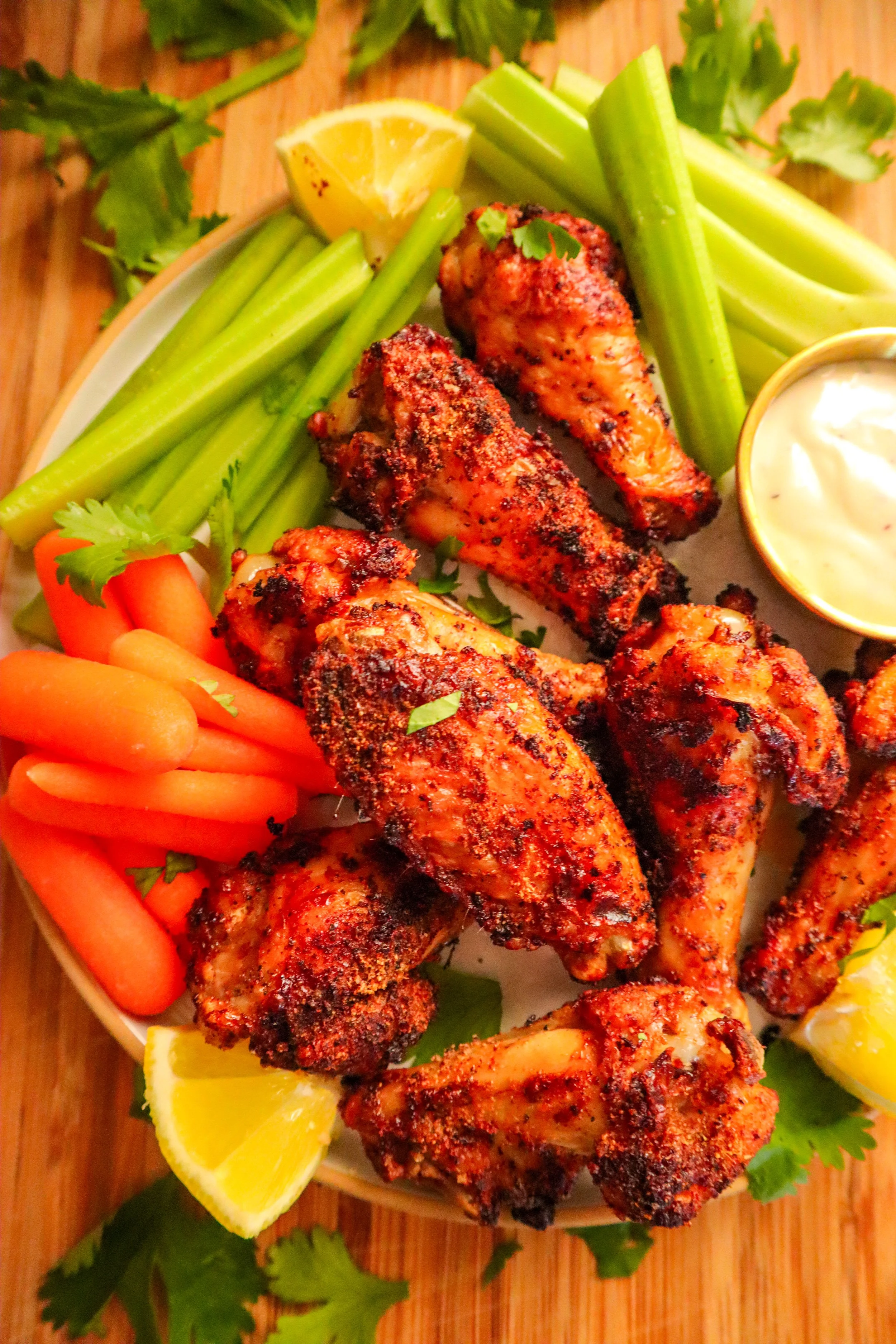

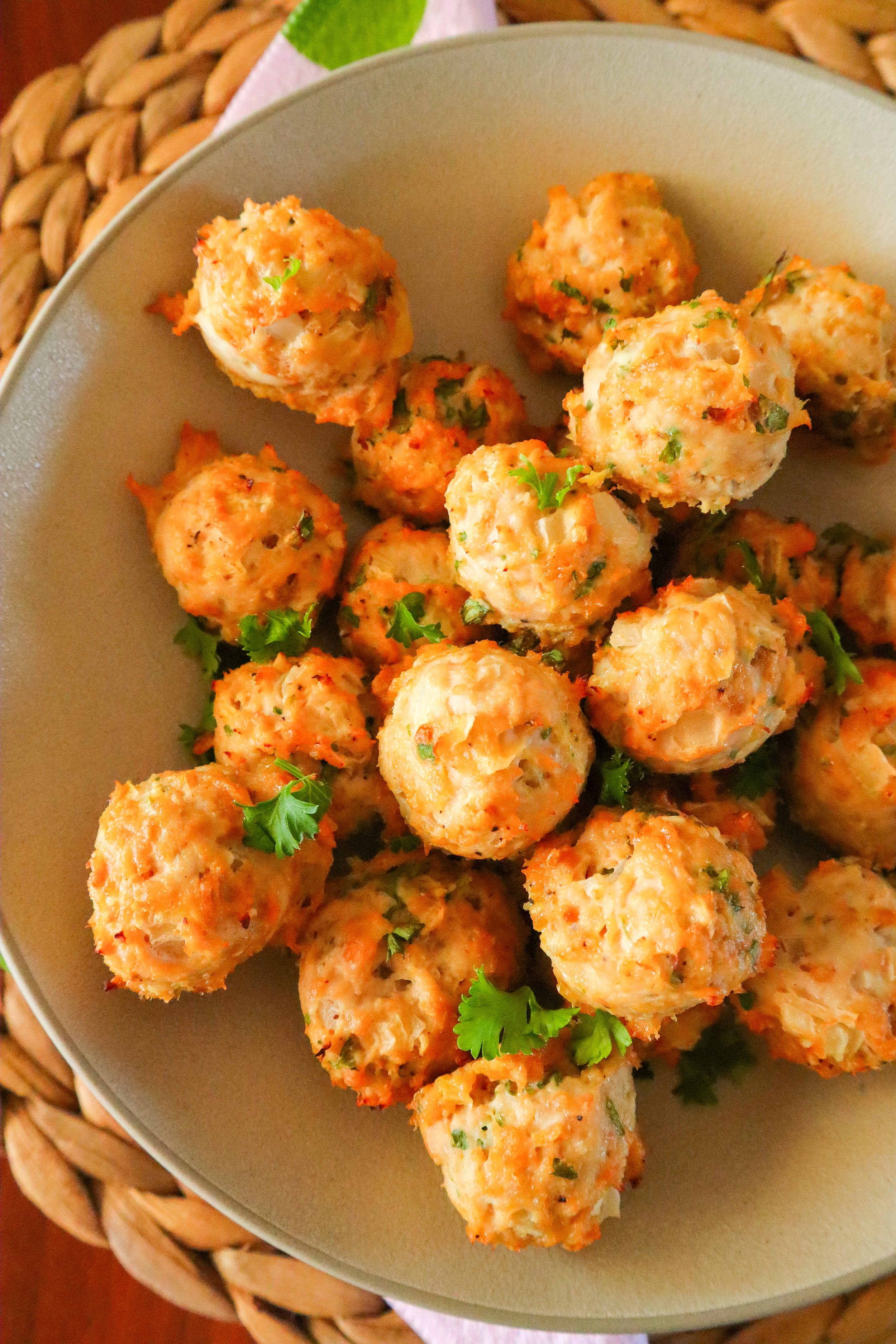
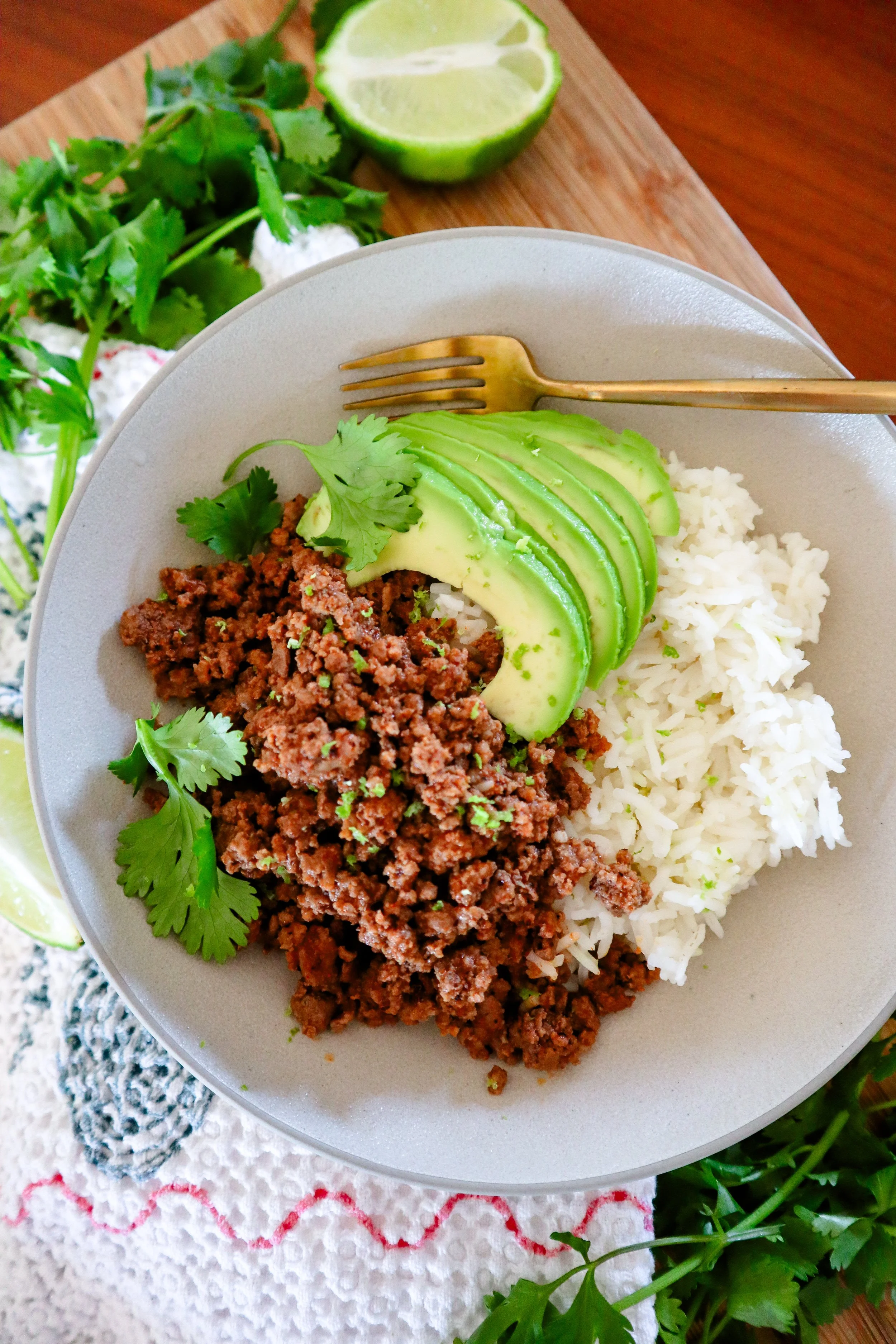
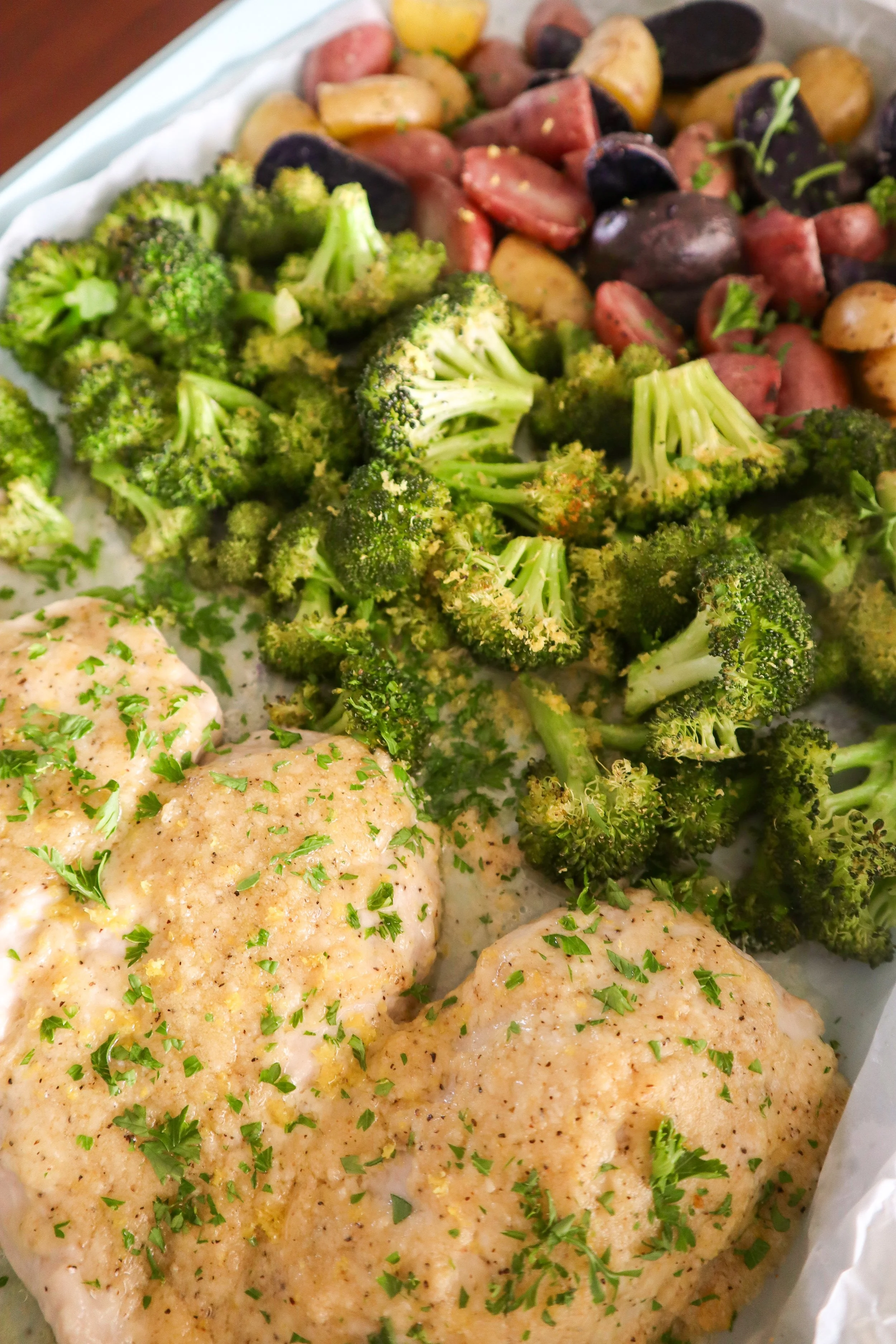
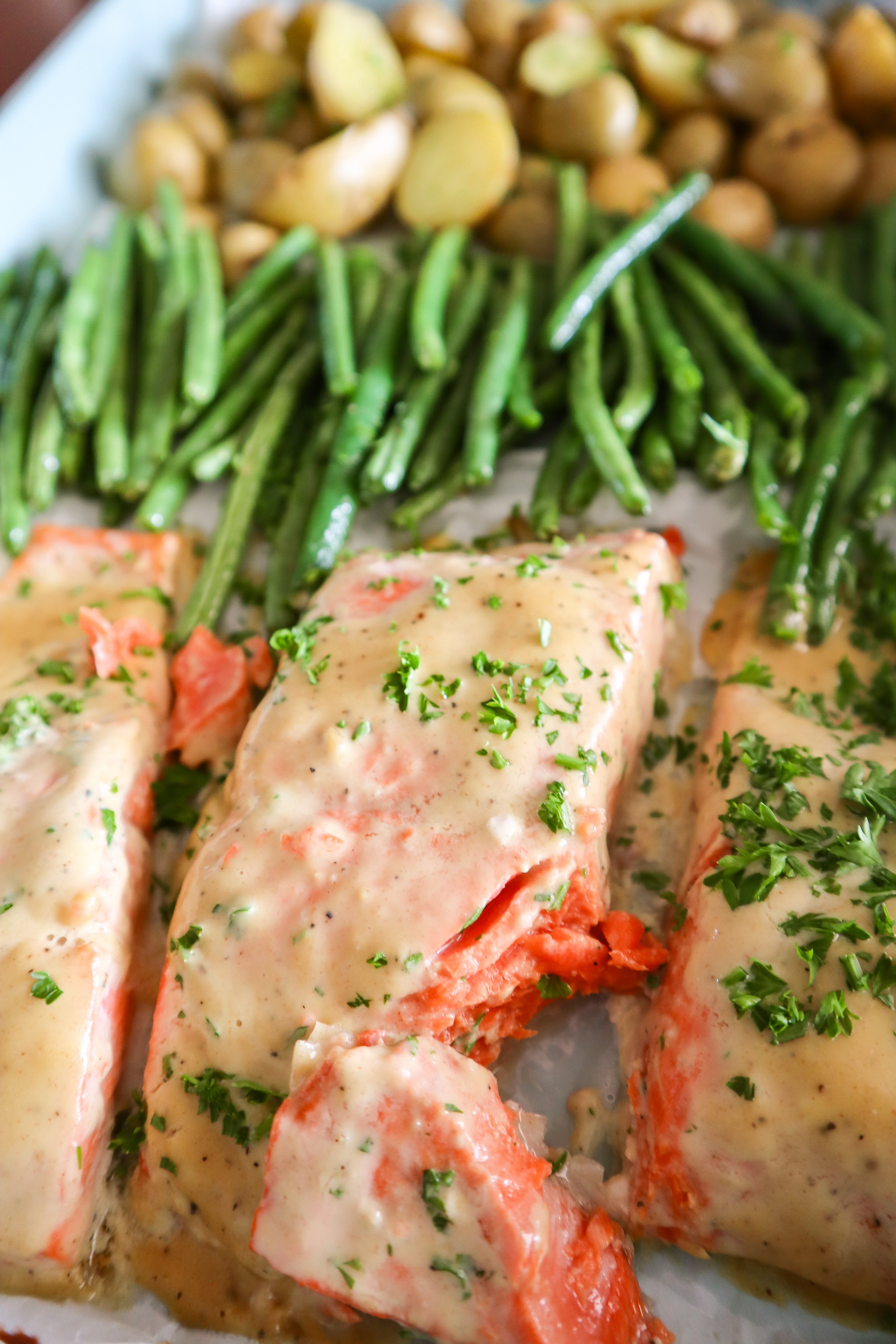





















Crispy lemon pepper wings made in the air fryer with real lemon zest, cracked pepper, and a buttery lemon sauce. Easy Wingstop copycat recipe in 40 minutes.